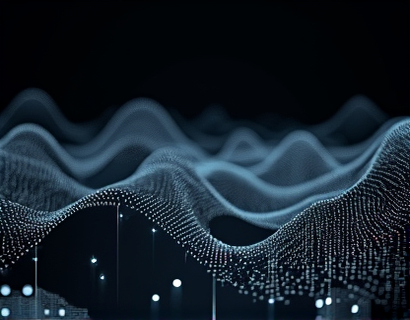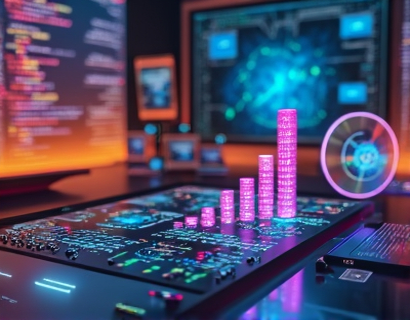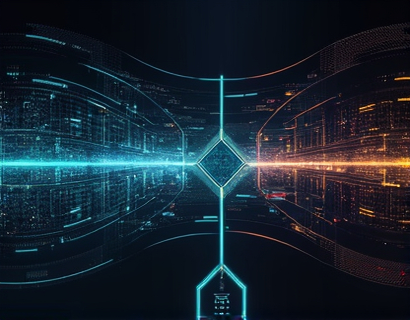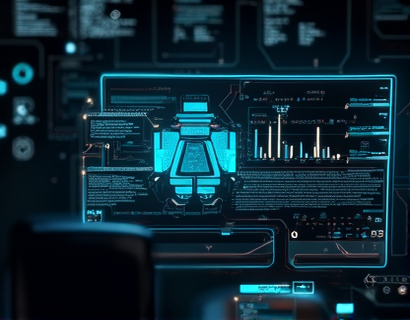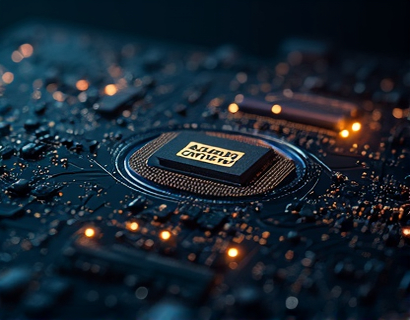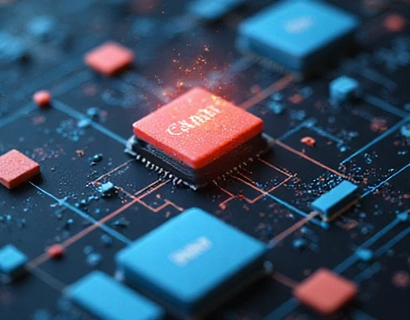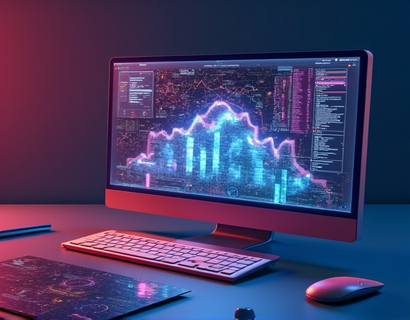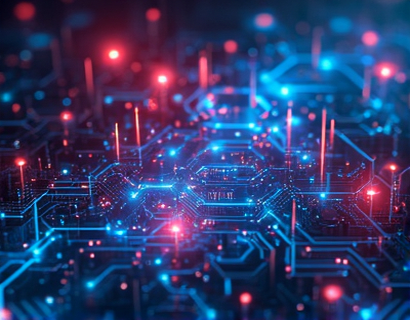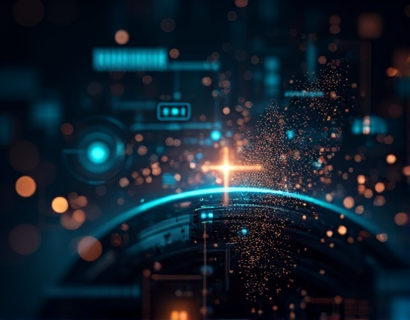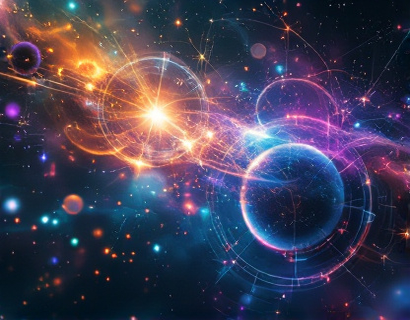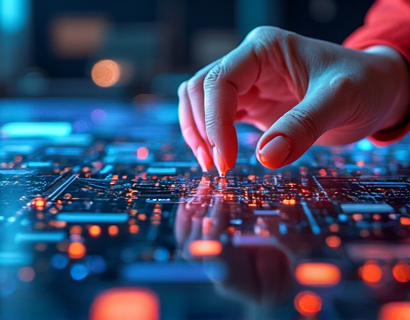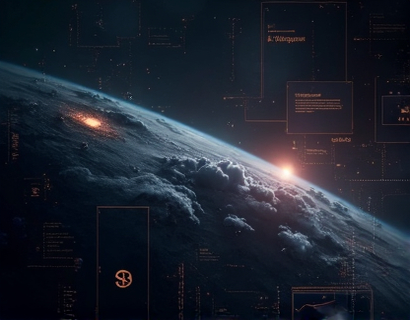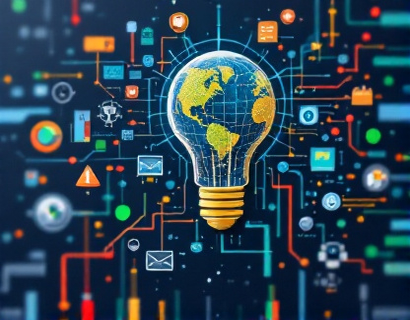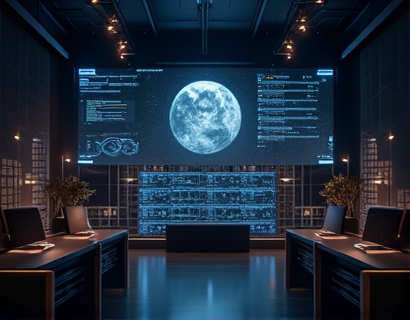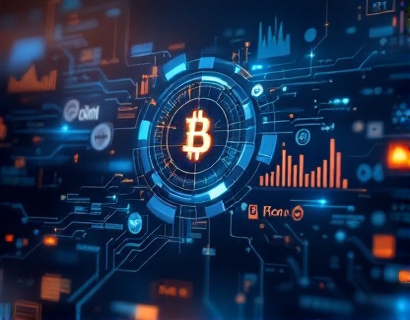Decentralized Productivity: Unleashing the Full Potential of AI and Crypto Integration
The integration of artificial intelligence (AI) with cryptocurrency and decentralized technologies is ushering in a new era of productivity and efficiency. This transformation is not just about enhancing individual tasks but redefining entire workflows and professional capabilities. By merging the power of AI with the decentralized nature of blockchain, we can unlock unprecedented levels of automation, security, and collaboration. This article explores how these technologies, when combined, can revolutionize digital workflows, making them more efficient, secure, and user-friendly.
Decentralized applications (dApps) powered by blockchain technology offer a foundation for building trust and transparency in digital interactions. Unlike traditional centralized systems, dApps operate on a distributed network, eliminating single points of failure and reducing the risk of data breaches. This inherent security makes them an ideal platform for integrating AI tools that require access to sensitive or large datasets. The decentralized nature ensures that AI models can be trained and deployed without compromising user privacy or data integrity.
AI, on the other hand, brings intelligent automation to the forefront. Machine learning algorithms can analyze vast amounts of data to identify patterns, make predictions, and automate repetitive tasks. When integrated with blockchain, AI can operate in a trustless environment, where smart contracts enforce rules and automate workflows without the need for intermediaries. This synergy not only enhances productivity but also reduces costs and increases efficiency.
Streamlining Tasks with AI and Blockchain
One of the most significant benefits of combining AI with blockchain is the automation of complex tasks. For instance, in project management, AI can predict project timelines, resource allocation, and potential bottlenecks by analyzing historical data. Smart contracts can then be programmed to adjust project plans in real-time based on AI recommendations, ensuring that projects stay on track without manual intervention. This level of automation not only saves time but also reduces human error, leading to more reliable outcomes.
In the realm of content creation, AI-powered tools can generate high-quality content, from articles to social media posts, based on specific parameters and user preferences. Blockchain ensures that content creators are fairly compensated through tokenized rewards, creating a decentralized economy where value is distributed transparently. This model incentivizes high-quality content creation and encourages a more engaged and motivated community of creators.
Enhancing Collaboration and Communication
Collaboration is a critical aspect of modern productivity, and the integration of AI and blockchain can significantly improve how teams work together. Decentralized communication platforms can use AI to facilitate seamless interactions, translating languages in real-time, summarizing meetings, and even predicting the next steps in a project based on team dynamics. These platforms can operate on a blockchain, ensuring that all communications are secure, tamper-proof, and accessible only to authorized participants.
Furthermore, AI-driven analytics can provide insights into team performance and collaboration patterns. By analyzing communication logs, task completion rates, and other relevant data, AI can identify areas for improvement and suggest optimized workflows. Smart contracts can enforce these recommendations, ensuring that teams adhere to best practices and maintain high levels of productivity.
Secure and Decentralized Data Management
Data management is another area where AI and blockchain can work synergistically to enhance productivity. Decentralized data storage solutions, such as InterPlanetary File System (IPFS), combined with AI, can offer secure and efficient data handling. AI algorithms can optimize data storage by identifying redundant files, compressing data, and ensuring that only necessary information is stored and accessed. This not only saves storage space but also reduces bandwidth costs.
Blockchain ensures that data provenance is maintained, allowing users to trace the origin and history of data files. This transparency is crucial in industries where data integrity is paramount, such as healthcare and finance. AI can further enhance this by detecting anomalies and potential security threats in real-time, providing an additional layer of protection against data breaches and unauthorized access.
Tokenization of Work and Incentivization
The tokenization of work and incentives is a revolutionary concept that leverages blockchain and AI to create a more motivating and fair work environment. By representing tasks, projects, and contributions as tokens, organizations can create a decentralized economy where value is directly tied to individual and team performance. AI can dynamically adjust token rewards based on performance metrics, ensuring that incentives are aligned with desired outcomes.
For example, in a freelance marketplace, AI can evaluate the quality and efficiency of a freelancer's work and issue tokens accordingly. These tokens can be used to purchase services, access premium tools, or even traded within the ecosystem. This system not only motivates high performance but also builds a reputation system where trusted and reliable contributors are rewarded, fostering a community of excellence.
Challenges and Considerations
While the potential of AI and blockchain integration is vast, there are several challenges and considerations to address. One of the primary concerns is the technical complexity involved in building and maintaining decentralized systems. Developers need to have a solid understanding of both AI and blockchain technologies to create robust and scalable solutions. Additionally, the interoperability between different blockchain platforms and AI frameworks is crucial for widespread adoption.
Another challenge is the regulatory landscape. As decentralized technologies and AI continue to evolve, regulatory bodies are still catching up. Ensuring compliance with data protection laws, anti-money laundering regulations, and other legal requirements is essential for the successful deployment of these technologies. Organizations must stay informed and adapt to changing regulations to avoid legal pitfalls.
Lastly, there is the issue of user adoption. For decentralized productivity tools to be effective, users need to be educated about the benefits and ease of use. Providing intuitive interfaces and comprehensive documentation can help bridge the gap between complex technology and everyday users. Community support and feedback loops are also vital in refining and improving these tools over time.
Future Prospects
The future of decentralized productivity, powered by AI and blockchain, is promising. As technology advances, we can expect more sophisticated AI models that can operate efficiently on decentralized networks. The development of more user-friendly decentralized applications and the standardization of blockchain protocols will further drive adoption. The integration of edge computing with blockchain and AI can also enhance performance by processing data closer to the source, reducing latency and improving response times.
Moreover, the convergence of AI, blockchain, and other emerging technologies like the Internet of Things (IoT) will create a more interconnected and intelligent world. Smart devices can communicate and make decisions autonomously, with AI providing the intelligence and blockchain ensuring secure and transparent interactions. This ecosystem will not only boost productivity but also pave the way for new business models and innovative services.
In conclusion, the integration of AI and blockchain represents a paradigm shift in how we approach productivity and digital workflows. By leveraging the strengths of both technologies, we can create more secure, efficient, and collaborative environments. As these technologies continue to mature, the possibilities for enhancing professional capabilities and redefining the modern workplace are endless.



